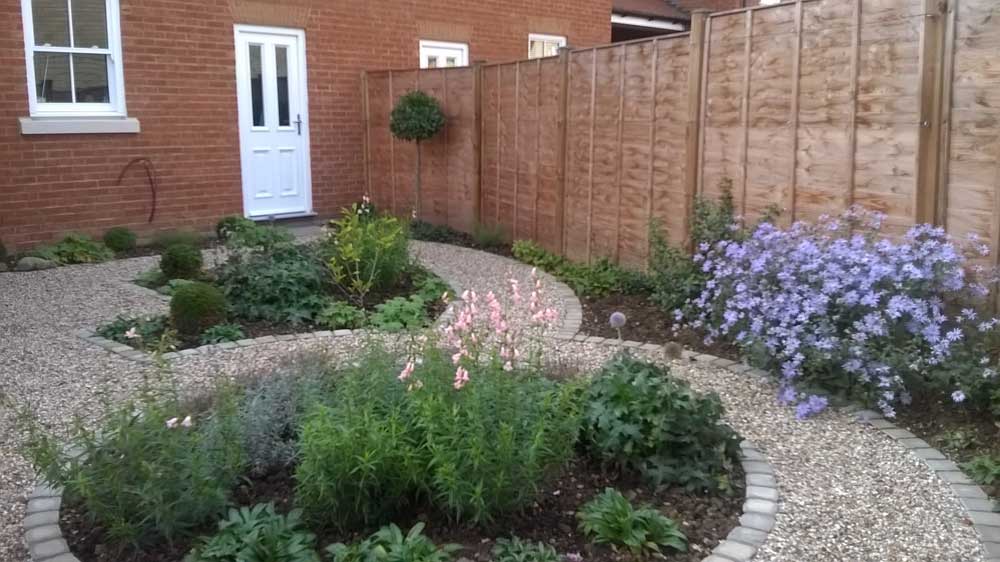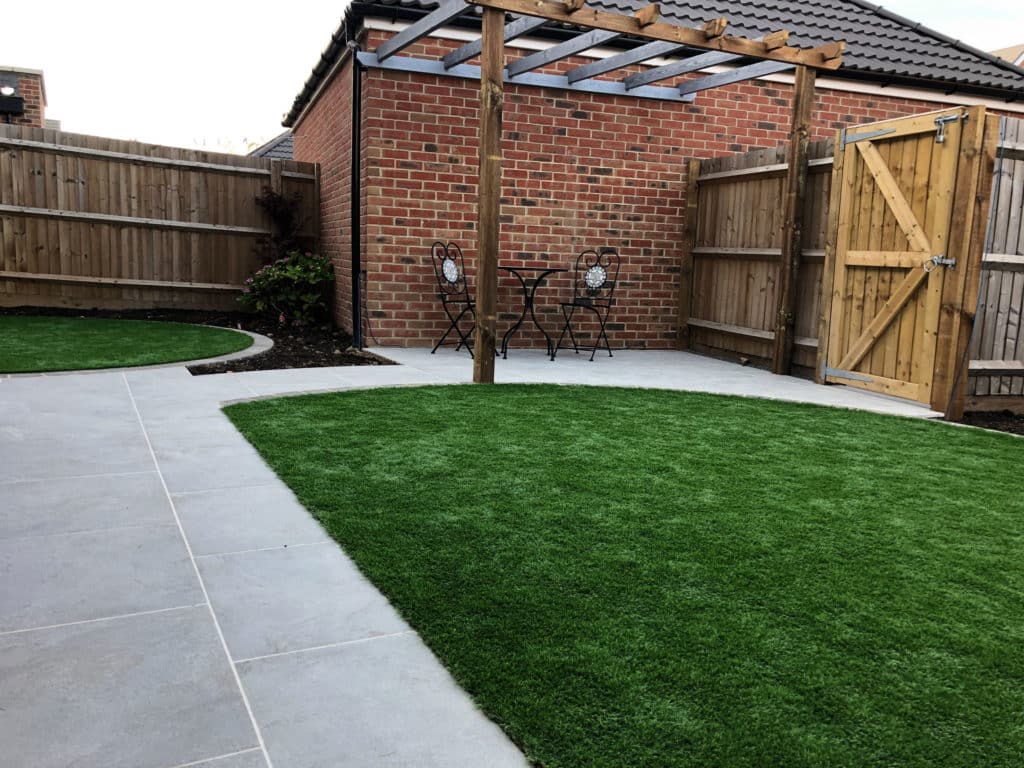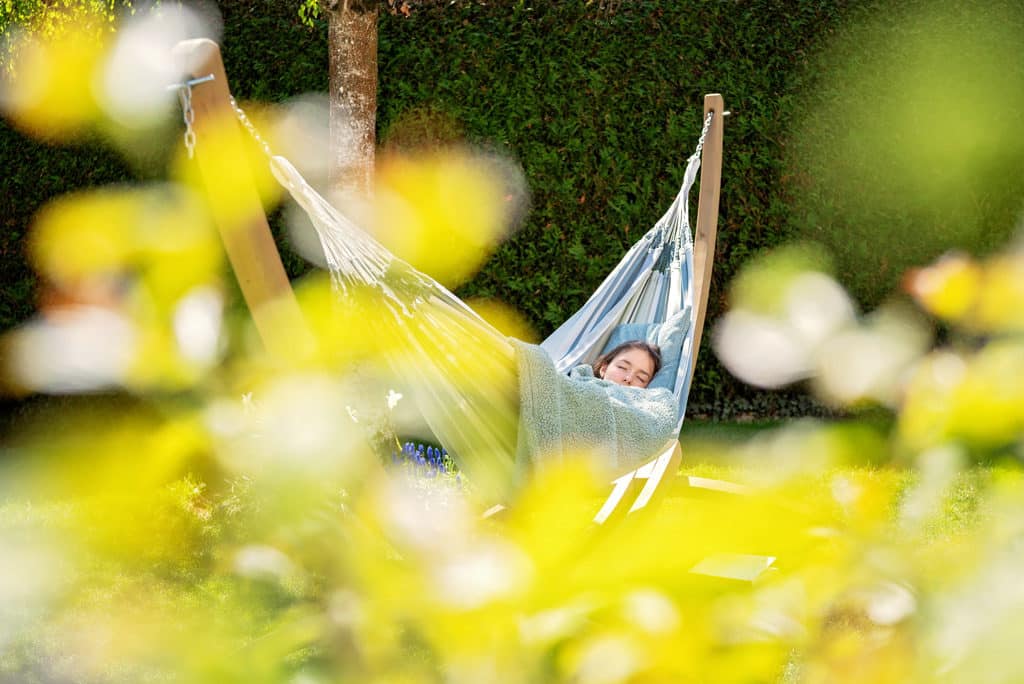23 Jun Mental Health Matters: How your garden can help
Mental health awareness week has passed but as we return to work after the COVID-19 lockdown, anxiety and depression are just a heartbeat away for some people. Here’s how a simple garden makeover can turn your outdoor space into a mental health haven.
It’s a well-documented fact that spending time in nature is hugely beneficial for everyone but especially helpful for those with mental health issues. Gardens can be great. The idea of having a peaceful haven just the other side of the window is incredibly soothing. However, creating and maintaining that haven when you don’t feel well is nigh on impossible. In fact when depression is at its worst, a person can feel too tired to even step outside, let alone mow the lawn and nip to the garden centre.
Here’s how a good garden designer can help
- See through the mess and muddle and help you visualise a better garden
- Help prioritise garden features according to your personality and lifestyle
- Design a safe haven with privacy, attractive views and easy access
- Combine beauty and functionality with easy maintenance
- Draw up plans to suit the whole family – including the dog
- Find a reputable landscaper who can build your garden AND respect social distancing – you don’t have to do anything
Imagine a safe haven where worries are dissolved
Even a tiny garden can become a peaceful have with careful design. This low maintenance space appeals to all five senses and even though it’s in an urban setting, it feels safe and undisturbed.
Juggling mental health, work and family matters is a challenge at any time, but when the threat of coronavirus makes moving around into an angst-ridden nightmare it’s more important than ever to have stress management strategies in place.
Before COVID-19 how did you unwind? Holidays? Pub? Visit friends? Go to the beach? Retail therapy? While most of those things are either no possible or don’t feel safe, what could you do instead?
For me, personally, spending time outdoors, cooking on the barbecue, listening to a podcast or just staring into space are enormously helpful.
A word about the mechanics of stress
Those symptoms of stress – the tightness in the tummy, fizzing fingers and twitching legs are all the work of two hormones. Adrenaline and cortisol. Adrenaline gets the body ready for fight or flight and cortisol gets the brain into gear for speedy decision making.
The biggest difference between them is the amount of time it takes your body to get rid of them once the threat has passed.
Imagine you have a hard day at work, the train is packed and then your drive home from the station is a pain in the backside. Your body will release adrenaline and cortisol as a natural survival mechanism. This system evolved in our ancestors to allow them to either hunt food or run from predators. Their bodies would deal with the threat/opportunity and then walk home slowly for a meal and a sleep. The walk would help their system to dissolve those stress hormones.
We know that adrenaline is the first of those hormones to leave the body. It has a half-life of around 2 – 3 minutes. In other words, 3 minutes after the threat has passed, half of the adrenaline in your body will have disappeared. In 6 minutes, half of the remaining hormone has gone and you’re down to one quarter of the original dose. Cortisol is not so obliging. It has a half-life of 66 minutes.
The thing with any substance that stresses your body is that first, you have to stop it going in or being produced. Next you have to wait for your body to deal with what’s there. Then every cell needs to settle and readjust.
Your outdoor space helps with all three of those stages…..even if you’re looking at it through a window. BUT if you’re standing on the doorstep thinking how awful your garden looks and knowing that the neighbours are watching you, the grass needs cutting and the plants are dying, that stress will just keep piling on.
The solution – get help to make your garden into a stress busting refuge.
Designing a stress less garden
Green is one of the best stress-busting colours in the spectrum but if you tense up at the idea of mowing the lawn – why not opt for artificial grass?
This garden has neutral colours, two intimate seating areas and is designed for optimum privacy. Read more here
Colour psychology plays a big part in a stress less garden. Using soft and neutral colours for the hard landscaping and the planting is easy on the eye and helps you to feel as though your heart rate is regulating.
A clutter free layout helps enormously. Depending on the size and shape of your garden, that might mean lots of concealed storage space for bins, toys, tools etc. Or it might involve some sort of screening.
Privacy and security are a must. Even the most sociable among us need to feel that we’re not being overlooked and that our own little space is safe from intruders.
Looks great from any angle. The UK weather means that not every day is an outside day. So make sure that your garden looks good from inside the house. Also bear in mind what you’ll see when you step out of the car and through the garden gate. Make sure your garden works hard for you every second that you are at home.
Appeal to all of the senses but avoid sensory overload. The perfect stress less garden offers gentle sounds, scents, cool shady spots for a hot day, sheltered places for a breezy day, somewhere to eat, comfy places to sit. Clashing colours and lots of activity make for an exciting garden but may not help manage stress levels.
A well designed garden allows you to completely relax safe in the knowledge that all is well in your little corner of the universe
Take a holistic approach to garden design
The team at Tapestry Design Studios really do understand how gardens can influence mental health. For some people the act of weeding, watering and nurturing plants is thoroughly therapeutic. For others the thought of it is overwhelming. That’s OK, every Tapestry garden is tailored to the people who are using the space.
Sharing the garden with a boisterous family? We can create an intimate retreat within the space and still leave room for play.
Our approach to garden design is holistic. We want your garden to appeal to all five senses, suit the whole family and offer a safe space where your body can deal with those stress hormones and return to normal.
For help designing a garden that’s good for your mental health – get in touch with the Tapestry Team.
You may also like these articles
Case study: how an urban back garden became a stress-free retreat
Preparing your garden for your return to work
Garden Design and Social Distancing
Landscape design with security in mind– keeping your pets and property safe








Sorry, the comment form is closed at this time.